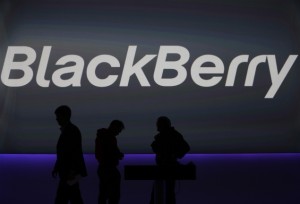After losing ground in the smartphone race, Canada’s BlackBerry is attempting to make a dent in the internet of things space by launching a healthcare service that will integrate thousands of medical devices to enable early detection of illnesses.
The company will soon announce the launch of a connected healthcare service in partnership with US-based healthcare technology firm NantHealth as it looks beyond smartphones in the Indian market, one of the few where BlackBerry’s revenue is still growing.
The NantHealth platform is currently installed at about 250 hospitals globally, and connects more than 16,000 medical devices collecting more than 3 billion vital signs annually.
“Work has started on it but we haven’t finalised an official launch date,” said Sunil Lalvani, managing director, Black-Berry India. “We are running trials with multiple hospitals in India. It includes integration with different hospital information systems as well as various medical equipment.”
Healthcare providers in India are expected to spend $1.08 billion (about Rs 6,400 crore) on IT products and services in 2014, a 4 per cent increase over the previous year, according to brokerage Equentis Capital.
NantHealth’s Clinical Operating System (cOS) platform integrates the knowledge base with the delivery and payment systems, and with BlackBerry’s QNX embedded technology, it combines secure cloud-based and supercomputing services to provide data integration, decision support and analytics.
BlackBerry bought a minority stake in the privately held NantHealth in April to enter the connected healthcare space. Medical equipment, such as scanners, dopplers and ECG machines, are among thousands of medical devices that can be integrated using cOS along with BlackBerry’s QNX. QNX, bought by BlackBerry in 2010, is an operating system, which the company used as a foundation for its revamped BB10 platform.
QNX commands a 53% marketshare in automobile infotainment systems, where it has been used in over 200 models of cars, including those made by Ford, Mercedes, Audi and BMW, according to market research firm HIS. Apple’s recently announced platform for cars, CarPlay, also utilises QNX.


